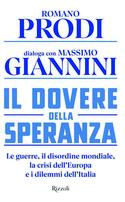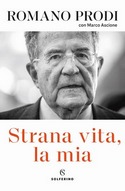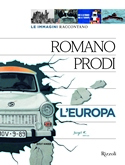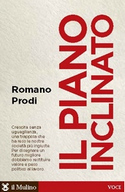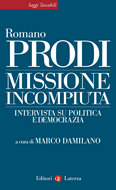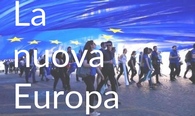Europe must have a single and powerful voice
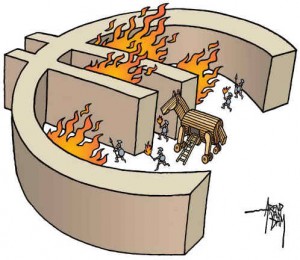 A Europe under fire can still make its voice heard
A Europe under fire can still make its voice heard
Written by Romano Prodi for Financial Times of December 12 2010
The financial crisis is bearing down hard on Europe. Newspaper headlines bemoan the European Union’s lack of unity, political vision and leadership; some even talk of a break-up. Can it really have come to this? Focus only on the short term and you might suppose the answer was yes. Step back and look at the incredible “movie” of the EU story, however, and a very different picture emerges.
From the ashes of postwar Europe, the vision of union has given us peace after centuries of conflict. The common market has made Europe a leading economic power in the world. As internal borders fell, people began to feel part of a space much larger than their own countries. The enlargement at the end of the 1990s has offered a sense of belonging to a peaceful, democratic family. History has been moving forward in a virtuous direction, albeit with the occasional setback.
So, what is happening now? Has this inspiring narrative broken down? I do not believe so. The problem is that short-term politics are taking their toll. No European leader has yet had the courage to say that a solution is impossible if we go backwards rather then forwards.
When I see Germans balking at the Greek or Irish rescue packages, exposing the euro to serious strains, I wonder why they do not see that most of their great economic strength has been possible thanks to the single currency and its success in preventing competitive devaluations. As an Italian it is easy for me to remember that the exchange of the lira to the D-Mark was 172 in 1970, 474 in 1980 and 990 when the euro was launched. As any German would surely also remember, such devaluations meant that there was no German trade surplus before the euro.
Lack of solidarity is even harder to understand when you consider that the first beneficiaries of European rescues are not local taxpayers but foreign banks, many among them German. I do not think any country, weak or strong, will consider it appropriate or convenient to roll the credits on this film.
European authorities should not panic, offering international investors reasons to “short” the bonds of countries in trouble. We should rather make such investors panic, by showing that we stand ready to buy these bonds ourselves.
As a matter of fact, history appears to be taking its own revenge on the short-termists. The political union of Europe is gaining new drive today. Never have we seen so much concerted action by finance ministers. Now we can already say that the euro crisis is pushing Europe forwards.
So far, this has been happening in monetary and financial policy. We now have the chance to make progress in another vital area: securing a common European voice in the main international bodies.
Germany and Portugal have been elected non-permanent members of the UN Security Council for 2011-12. Together with France and the UK, both permanent members, European countries will represent more than 25 per cent of the UN body in charge of peace and security in the world.
A great accomplishment for Europe, one might think, but in fact Europe – in the shape of the EU – is still the great absence in this forum. There is an opportunity for change, however, and the Portuguese government has seized it. The day after its election, it proposed to include an EU diplomat in its delegation to the Security Council.
The challenges ahead are clear. No European country has the size, strength and authority to face these challenges alone. All the debates about the most compelling political issues, from the Middle East to world governance, arrive at the same conclusion of European irrelevance. One EU voice at the UN, therefore, would be extremely important.
At the end of the 20th century, European leadership proved enlightened, opting for monetary union and giving up the D-Mark, the French franc and the Italian lira. The present EU leadership should follow the same path by promoting a single European foreign policy, especially at a time when national ones are being rapidly downsized. We need a powerful voice in the Security Council that will give Europe the same strength and authority it has in the World Trade Organisation. Why should we continue to be represented by a crowd of powerless and divided dwarves?
Europe’s story is not over yet. This is a film that will run and run.
The writer is former Italian prime minister and was president of the European Commission, 1999-2004






